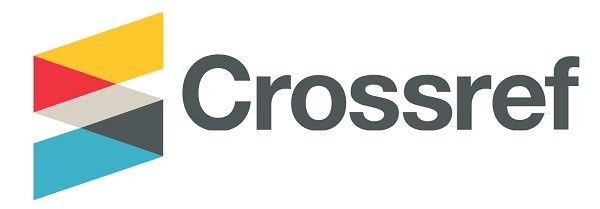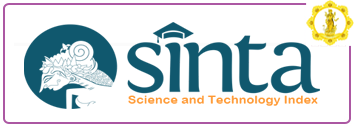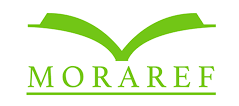Peran Akreditasi Dalam Menarik Minat Mahasiswa Memilih Perguruan Tinggi Swasta Bermutu Di Kota Pekanbaru
DOI:
https://doi.org/10.25078/jpm.v4i2.574Keywords:
quality education, class employeeAbstract
The ability of the community to meet the needs of life is increasingly difficult, especially to meet the needs of higher education for their children, so that children who graduate from high school choose to work while studying. This causes campuses to seize this opportunity by providing employee classes or on weekends so that they can accommodate market needs, but still maintain quality standards, easy but not easy. About 45% of new students want night classes.
Downloads
References
Alfattal, Eyad. 2017. International students’ college choice is different. International Journal of Educational Management, Volume: 31 Issue: 7.
Amir, Amizawati Mohd., Sofiah Md Auzair., Ruhanita Maelah., Azlina Ahmad. 2016. Pricing for higher education institutions: a value-based approach. International Journal of Educational Management, Volume: 30 Issue: 6.
Anninos, Loukas N., Leonidas S., Chytiris. 2012. The sustainable management vision for excellence: implications for business education. International Journal of Quality and Service Sciences, Vol. 4 Issue: 1, pp.61-75.
Bajada, Christopher., Rowan Trayler. 2016 Introduction to threshold concepts in business education. Education Training, Volume: 58 Issue: 5.
Brown, Claire., Peter Varley, John Pal. 2009. University course selection and services marketing. Marketing Intelligence & Planning, Volume: 27 Issue: 3.
Chiu, Randy. 1999. Relationships between motivators and criteria in the selection of a distance learning MBA programme in Hong Kong. Career Development International, Vol. 4 Issue: 1, pp.26-33.
Chulkov, Dmitriy., Jason VanAlstine. 2014. The impact of multiple textbook format availability in business education. Journal of Applied Research in Higher Education, Volume: 6 Issue: 1.
Dalci, İlhan., Hasan Özyapici. 2018. Cultural values and students’ intentions of choosing accounting career. Journal of Financial Reporting and Accounting, Volume: 16 Issue: 1.
Dao, Mai Thi Ngo., Anthony Thorpe. 2015. What factors influence Vietnamese students’ choice ofuniversity. International Journal of Educational Management, Volume: 29 Issue: 5.
Dalci., İlhan., Huseyin Araslı., Mustafa Tümer., Sarvnaz Baradarani. 2013. Factors that influence Iranian students’ decision to chooseaccounting major. Journal of Accounting in Emerging Economies, Volume: 3 Issue: 2.
Gniewosz, Gerhard. 1998. Professional Aspriations and Preferences of South Pacific Accounting Students: A Comparative Analysis. Asian Review of Accounting, Vol. 6 Issue: 2, pp.143-162.
Graham, Barbara. 1991. Career Choices of Older Graduates. International Journal of Manpower, Vol. 12 Issue: 5, pp.27-38.
Hall, Jhon., Michael Shaw., Isobel Doole. 1997. Crossâ€cultural Analysis of Wine Consumption Motivations. International Journal of Wine Marketing, Vol. 9 Issue: 2, pp.83-92.
Haw, In-Mu., Bingbing Hu., Jay Junghun Lee., Woody Wu. 2016. The impact of industry concentration on the market’s ability to anticipate future earnings: International evidence. International Journal of Accounting & Information Management, Vol. 24 Issue: 4, pp.443-475.
Hemsley-Brown, Jane.,Izhar Oplatka. 2015. University choice: what do we know, what don’t we know and what do we still need to find out. International Journal of Educational Management, Volume: 29 Issue: 3.
James-MacEachern, Melissa., Dongkoo Yun. 2017. Exploring factors influencing international students’ decision tochoose a higher education institution: A comparison between Chinese and other students. International Journal of Educational Management, Volume: 31 Issue: 3.
Joseph, Mathew., Beatriz Joseph. 1998. Identifying needs of potential students in tertiary education for strategy development. Quality Assurance in Education, Volume: 6 Issue: 2.
Joseph, Mathew., Beatriz Joseph. 2000. Indonesian students’ perceptions of choice criteria in the selection of a tertiary institution: strategic implications. International Journal of Educational Management, Volume: 14 Issue: 1.
Jurše, Milan., Matjaž Mulej. 2011. The complexities of business school alignment with the emerging globalisation of business education. Kybernetes, Volume: 40 Issue: 9/10.
Kobayashi, Kaoru. 1996. Adult business education programmes in private educational institutions in Japan. Journal of Management Development, Vol. 15 Issue: 8, pp.30-37.
Lai, Angel Po Cheung Lai., Paul Gibson., Siva Muthaly. 2014. Becoming an education provider of choice in Hong Kong: an inquiry into student decision making. International Journal of Educational Management, Volume: 28 Issue: 5.
Laugthon, David., Roger Ottewill. 2000. Developing crossâ€cultural capability in undergraduate businesseducation: implications for the student experience. Education Training, Volume: 42 Issue: 6.
Lee, Kang-Young., Randy Warren Green. 2016. The World Englishes paradigm: A study of Korean universitystudents’ perceptions and attitudes. English Teaching: Practice & Critique, Volume: 15 Issue: 1.
Lock, Andrew. 1999. Accreditation in business education. Quality Assurance in Education, Volume: 7 Issue: 2.
Lorange, Peter. 2003. Case study: Global responsibility – business education andbusiness schools – roles in promoting a global perspective. The international journal of business in society, Volume: 3 Issue: 3.
Maringe, Felix. 2006. University and course choice: Implications for positioning, recruitment and marketing. International Journal of Educational Management, Volume: 20 Issue: 6.
Matzdorf, Fides., Louise Smith., Helen Agahi. 2003. The impact of facilities on student choice of university. Facilities, Volume: 21 Issue: 10.
Naeem, Malik., Mark Neal. 2012. Sustainability in business education in the Asia Pacific region: a snapshot of the situation. International Journal of Sustainability in Higher Education, Volume: 13 Issue: 1.
Pfeffermann, Guy. 2016. GBSN’s perspective on business education and globalization, Journal of Management Development, Vol. 35 Issue: 7, pp.866-877.
Phillips, Melodie R., Veronica Horton. Cybercheating: has morality evaporated in business education. 2000. International Journal of Educational Management, Volume: 14 Issue: 4.
Seeley, Eugene Lyle., Todd Goddard., Ronald Mellado Miller. 2018. Ge-whiz! How students choose their general education classes. Journal of Applied Research in Higher Education, Volume: 10 Issue: 3.
Silvanto, Sari., Jason Ryan., Vipin Gupta. 2017. A study of the impact of business education on global career mobility: An analysis of location and international orientation. Journal of International Education in Business, Volume: 10 Issue: 1.
Soutar, Geoffrey N., Julia P. Turner. 2002. Students’ preferences for university: a conjoint analysis. International Journal of Educational Management, Volume: 16 Issue: 1.
Suci, Afred. Penjaminan mutu perguruan tinggi : Dilema politik organisasi dan urgensi penggunaan profesional eksternal. Jurnal Penjaminan Mutu IHDN Vol 3 No 2 Agustus 2017.
Suci, Afred., Junaidi. 2018. Pemetaan Daya Saing Internal Universitas Lancang Kuning. Jurnal Daya Saing. Volume 4 Nomor 2 Juni pp. 153-164.
Tansel, Aysit., Nil Demet Güngör. 2003. Brain drain†from Turkey: survey evidence of student nonâ€return. Career Development International, Vol. 8 Issue: 2, pp.52-69.
Tang, Lim Chhoung., Cheaseth Seng. 2016. Factors influence students’ choice of accounting major in Cambodian universities. Asian Review of Accounting, Volume: 24 Issue: 2.
Tarvid, Alexander. 2017. Attracting doctoral students: case of Baltic universities. International Journal of Educational Management, Volume: 31 Issue: 7.
Vaarmets, Tarvo. 2018. Gender, academic abilities and postsecondary educational choices. Journal of Applied Research in Higher Education, Volume: 10 Issue: 3.
Veloutsou, Cleopatra., Robert A. Paton., John Lewis. 2005. Consultation and reliability of information sources pertaining touniversity selection: Some questions answered. International Journal of Educational Management, Volume: 19 Issue: 4.
Widayat, Prama. 2018. Manajemen Risiko dan Asuransi dalam Praktek edisi revisi. Hanum Publisher. Jawa Tengah.
Widayat, Prama. 2018. Between cost chep prices and increasing high quality educational university in pekanbaru city. Jurnal Penjaminan Mutu. Volume 4 Nomor 1 Februari pp. 67-75.









